
Developing writing samples and networking are examples of strategies for students to develop their skills in medical writing.

Jennifer Gershman, PharmD, CPh, received her PharmD degree from Nova Southeastern University (NSU) College of Pharmacy in 2006 and completed a 2-year drug information residency. She served as a pharmacy professor at NSU's College of Pharmacy for 6 years, managed the drug information center, and conducted medication therapy management reviews. Dr. Gershman has published research on prescription drug abuse, regulatory issues, and drug information in various scholarly journals. Additionally, she received the Sheriff's Special Recognition Award for her collaboration with the Broward, Florida Sheriff's Office to prevent prescription drug abuse through a drug disposal program. She has also presented at pharmacist and physician continuing education programs on topics that include medication errors, prescription drug abuse, and legal and regulatory issues. Dr. Gershman can be followed on Twitter @jgershman2

Developing writing samples and networking are examples of strategies for students to develop their skills in medical writing.

American Pharmacists Month is an important time to recognize pharmacists who are innovators in medication therapy management

Pharmacists play a vital role in providing education and administering influenza, COVID-19, and RSV Vaccines

Pharmacists can provide important safety education to patients and health care professionals.
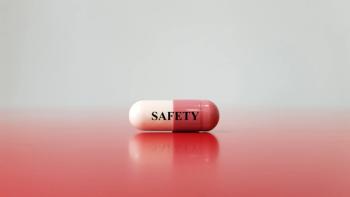
Pharmacists should provide guidance on issues such as proper drug disposal and potential drug interactions.
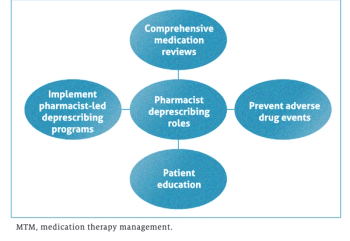
Pharmacists play key roles in performing comprehensive patient reviews, reducing polypharmacy.

Family members should also be trained in how to administer seizure first aid, apply a tourniquet to control bleeding, operate an automated external defibrillator, and perform cardiopulmonary resuscitation.

Health care professionals can provide patients with tips on appropriate hand sanitizer use, as well as product recommendations.

Adult and maternal RSV vaccines reveal positive findings.

Study results indicate that taking these products together reduces the risk of rebound congestion typically seen with intranasal decongestant therapy.
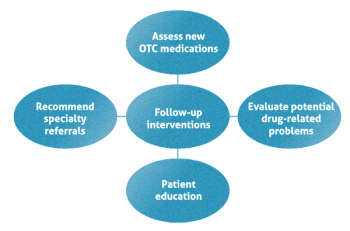
These appointments help identify medication-related problems and serve as a platform for additional education.
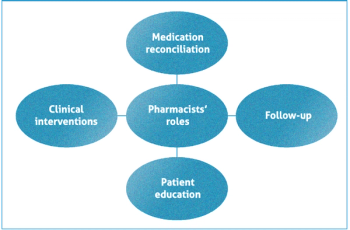
Clinical interventions, follow-ups, medication reconciliation, patient education are key aspects of the programs.
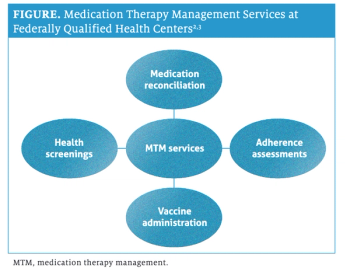
Services include adherence assessments, health screenings, medication reconciliation, vaccine administration.

Strategies to enhance patient relationships include teach-back method, providing follow-up information.

Pharmacists play a vital role in educating patients about differentiating among the common cold, COVID-19, influenza, and respiratory syncytial virus.

Educating patients, posting on social media, and countering misinformation are critical strategies.

Pharmacists play a vital role in administering these and educating patients about COVID-19, influenza, pneumococcal, and Tdap vaccinations.

Pharmacists play a vital role in counseling and educating families about medication safety for these products.
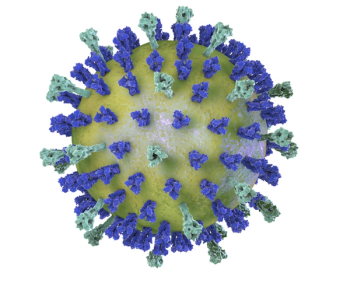
Pharmacists should educate patients about managing respiratory syncytial virus and let them know they may soon be able to get vaccinated.

Develop New Year's resolutions that include empowering patients, enhancing communication, increasing professional development.

Pharmacists should evaluate medications for potential problems at patient meetings to improve safety.
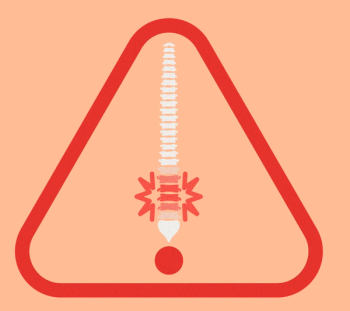
Pharmacists can offer advice on nonpharmacologic and pharmacologic prevention and treatment strategies.

Redesigning stores with special OTC areas for older patients can enhance communication, education.

Assess for medication-related problems, monitor patients remotely, and use mobile tools to deliver consultations.

Evaluating nonprescription medications, including dietary supplements, can prevent adverse effects.

They can assess for adherence, identify drug-related problems, monitor pharmacotherapy, and provide education.

Pharmacists can recommend calcium, smoking cessation products, and vitamin D to stave off this common condition.

Areas for improvement include the business model, health care team buy-in, patient engagement, and technology.

Pharmacists can resolve medication-related problems through face-to-face consultations with patients.

Pharmacists can offer medication adherence and management counseling and help patients with chronic disease treatments.